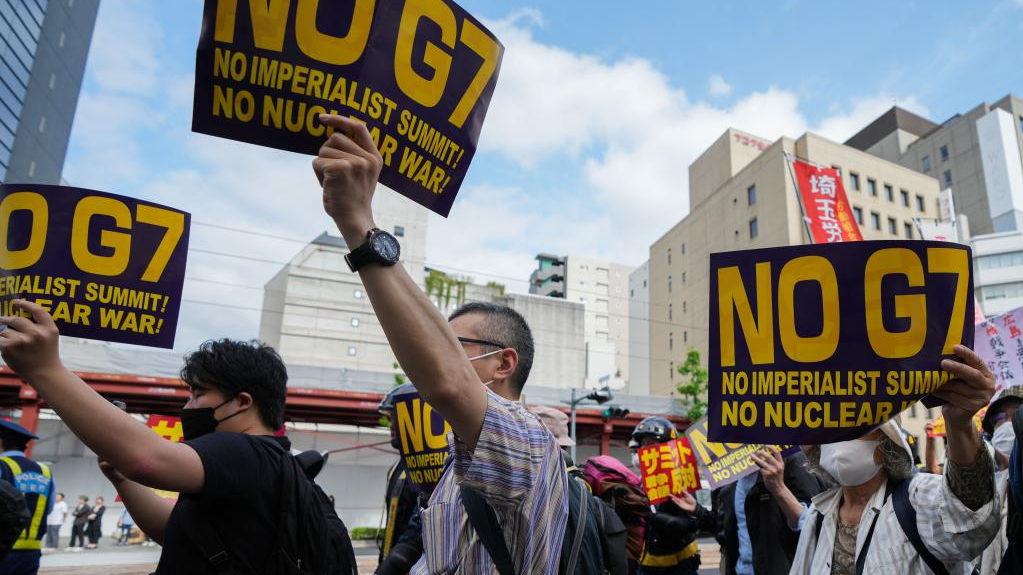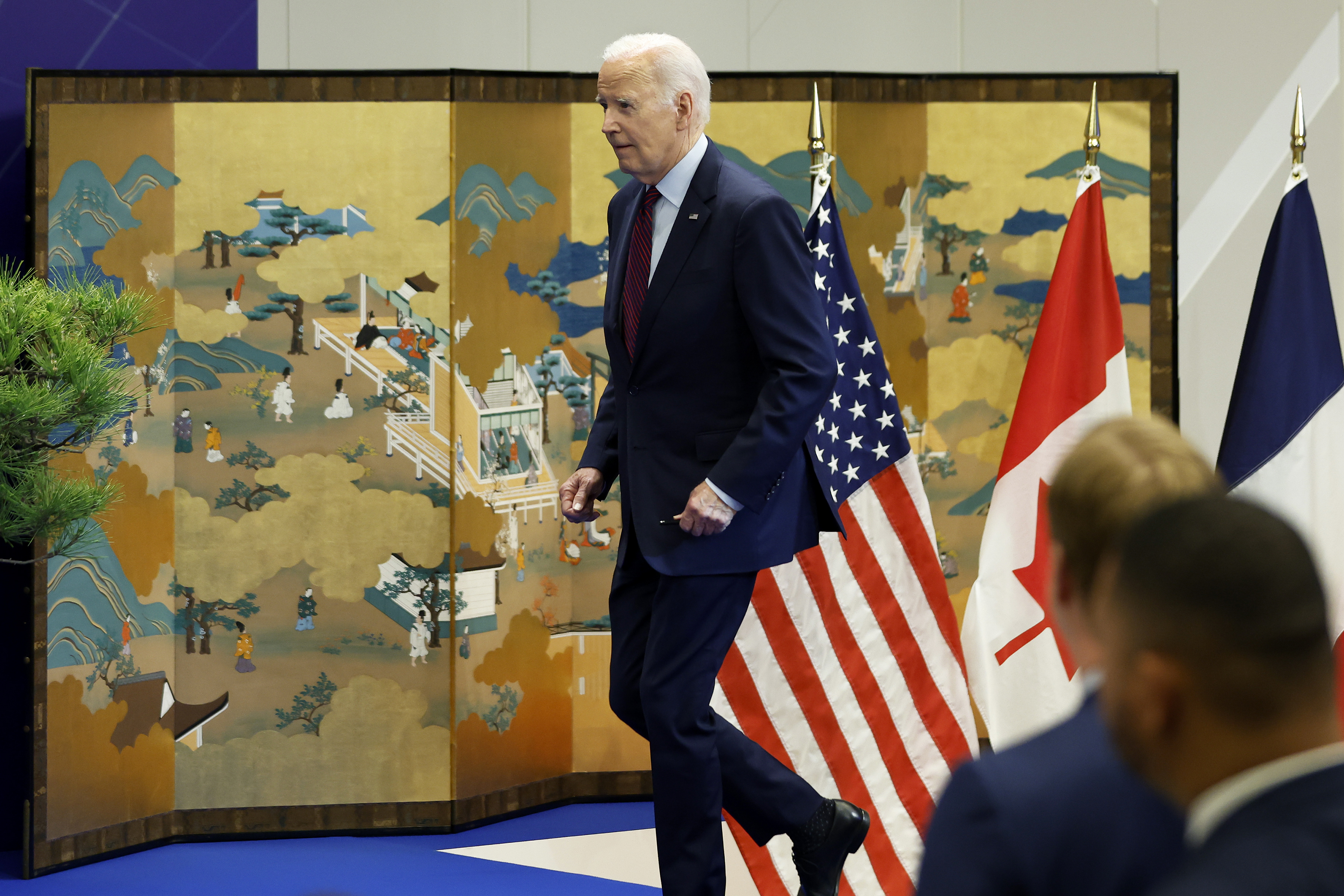
People rally in a protest against the Group of Seven (G7) summit in Hiroshima, Japan, May 20, 2023. /Xinhua
People rally in a protest against the Group of Seven (G7) summit in Hiroshima, Japan, May 20, 2023. /Xinhua
Editor's note: William Jones, a special commentator on current affairs for CGTN, is a former White House correspondent for Executive Intelligence Review. The article reflects the author's opinions, and not necessarily those of CGTN.
The meeting of the G7 countries in Hiroshima, Japan, on May 19 to 21 laid out clearly what their policy will be for the world, namely, guns not butter.
As the world stands on the edge of another major financial crisis, with U.S. President Joe Biden cutting short his Asia visit to try to prevent a U.S. debt default from sending the world economy into a tailspin, the G7 has concentrated on making sure the world remains on a war footing. Even the unusual invitation to Ukrainian President Volodymyr Zelenskyy to attend the meeting to mobilize more military equipment to continue the war, underlined this point.
At the meeting, Biden also announced a further step to a possible nuclear Armageddon by announcing that Ukrainian pilots would be trained on the U.S. F-16 fighter jet, giving a "green light" to his G7 allies to send these highly advanced jets to Ukraine to fight Russia. While the representatives of the U.S. military industry will be overjoyed at this new "boon" for their industries, the people of the Western nations have nothing to gain from this elaborate meeting but more pain – and for many, death.
In the lengthy communique, issued by the group on May 20, which contained a laundry list of big promises, the People's Republic of China was given special mention reiterating again the bogus issues of "human rights violations" in Xizang Autonomous Region and Xinjiang Uygur Autonomous Region. The king of unilateral sanctions, the United States, has got to be the biggest hypocrite in this respect, since it has been the most coercive country in the world in its use of economic sanctions to force countries to do its bidding.
While the G7, attempting to give the appearance of being more than a "coterie of Western nations," also invited countries like Brazil, India, and Indonesia to attend as observers, all of these countries have themselves felt the bite of U.S. sanctions at various times in their history.
At his press conference before leaving Hiroshima on May 21, Biden was even more adamant on this issue. While holding out the possibility that China-U.S. relations would soon be revived, he said that the G7 had a policy of "de-risking" economic cooperation with China, and that on the very sensitive topic of the Taiwan region, he said the U.S. would "put Taiwan in a position where they can defend themselves" if there were ever a conflict with the Chinese mainland.

U.S. President Joe Biden arrives for a news conference following the Group of Seven (G7) leaders summit in Hiroshima, Japan, May 21, 2023. /AP
U.S. President Joe Biden arrives for a news conference following the Group of Seven (G7) leaders summit in Hiroshima, Japan, May 21, 2023. /AP
In addition, the U.S. president said that the G7 "would not trade in materials that would allow China to build weapons of mass destruction." What this actually entails is still not totally clear, but it is obviously targeting China's expanding nuclear power program. This outright "coercive policy" would also be readily understood by countries like India and Brazil, which the U.S. had bent over backwards in attempting (unsuccessfully) to stop their development of nuclear energy.
The G7 also has the illusion of coming up with a program that would effectively counter the highly successful Belt and Road Initiative (BRI). The G7 has come up with its Partnership for Global Investment and Infrastructure, where they promise $600 billion for infrastructural investment in the Global South. This remains largely promises, however, and the firm commitment of the West to industrialize the Global South remains very much in doubt in contrast to their very firm commitment to pursue a policy of war.
The United States no longer serves as that beacon of hope and temple of liberty which may have had some relevance during the presidency of, say, a Franklin Roosevelt or a John F. Kennedy. The resolute pursuit of the notorious Wolfowitz Doctrine of maintaining the United States as the omnipotent superpower as well as the continued undermining of the "peoples' voice" in the American political system, has seriously tarnished that reputation in the eyes of the world.
(If you want to contribute and have specific expertise, please contact us at opinions@cgtn.com. Follow @thouse_opinions on Twitter to discover the latest commentaries in the CGTN Opinion Section.)